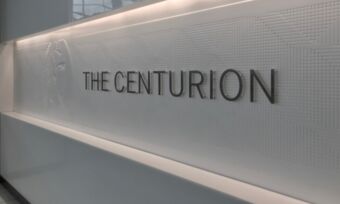RBA to remove the card surcharge monkey off Australians' backs

The RBA has today proposed to remove card surcharges across Visa, Mastercard and eftpos. Card surcharges cost Australians around $1.2 billion each year, according to the RBA.
In the consultation paper, the central bank has said it would be in the public interest to:
Remove card surcharges for consumers, regardless of whether they’re paying by Visa, Mastercard or eftpos. This includes debit and credit card surcharges on these networks.
Decrease the current caps on interchange fees paid by businesses to help reduce the cost of taking electronic payments for retailers. Interchange fees are fees charged by card issuers to payment service providers, which are then passed on to retailers.
Require card networks to publish the fees they charge, removing the cloak of secrecy that can often hang around these fees, making it easier for retailers to shop around.
The review is now in a consultation period, and depending on the outcome, the proposed changes could be introduced in July next year.
Majority of Australians want surcharges banned
A new Canstar survey of 3,001 Australians found 75% believe payment surcharges should be banned.
← Mobile/tablet users, scroll sideways to view full table →
| Do you think card surcharges should be banned? | |
|---|---|
| Yes | 75% |
| No | 19% |
| Unsure | 6% |
Source: Canstar. Notes: based on a survey of 3,001 respondents.
What rules are currently in place for surcharges?
There are rules around surcharging, which were last updated in 2016. Knowing what’s fair and permissible will help Australians steer clear of price gouging if and when they see it.
- A surcharge must be displayed “clearly and prominently”. If there are different fees according to whether you’re paying by credit, debit, eftpos or American Express, this has to be signposted so you can choose how you want to pay. Shops can charge a flat fee, however, it can’t be more than the cost of the lowest form of electronic payment.
- If there isn’t an option to pay without a surcharge, such as cash, the shop must include the minimum surcharge in the displayed price instead.
- Retailers can’t add any cream on to the top of the surcharge, so it’s worth knowing what the RBA deems as typical.
What are the fees currently being charged?
RBA 2023-24 data shows costs for small businesses are likely to be in the following ranges:
- Debit or eftpos: 0.85% to 2.00%.
- Credit: 1.00% to 2.00%.
Note: Larger businesses typically incur lower costs.
How are Australians avoiding card surcharges?
The Canstar survey of 3,001 respondents found Australians are taking proactive steps in their day-to-day lives to avoid paying card surcharges, with one third of Australians paying with cash to avoid this pesky fee, when it arises.
- 33% try to pay with cash when faced with a surcharge.
- 22% manually insert the card in store to avoid paying a surcharge.
- 11% avoid shops that charge a surcharge on card payments.
Will this be the final nail in the coffin for cash?
If a ban on card surcharges is effectively implemented, then those Australians who actively use cash to avoid card surcharges could opt to pay electronically for these purchases.
RBA estimates from 2022 show that just 13% of transactions are paid for with cash, a figure that will continue to decline over time, but would likely drop further if surcharges were eliminated.
However, this would not be the death knell for cash. In December last year, the federal government announced it would mandate that certain retailers had to accept cash for essential goods and services from 1 January 2026, with consultation on this proposal expected to be released this year.
According to the RBA’s 2022 report, 7% of Australians use cash to make more than 80% of their in‑person payments, while the government has said up to 94% of businesses continue to accept cash.
Canstar’s data insights director, Sally Tindall says, “Australians are fed up with being slugged at the checkout. Our research shows the vast majority of Australians want this annoying bugbear off their backs for good.”
“This is a consumer-first proposal from the RBA, which also tries to address the fact that small businesses are getting squeezed by these fees as well.
“Card surcharges have been draining our wallets for years and while it’s often just a handful of cents here and there, our research shows how irritated Australians are from these pesky fees, with one third of us carrying cash just to avoid them.
“New payment providers have revolutionised the way retailers, particularly small businesses, accept cash, making it easier to accept payments. However, this advancement in technology has pushed up the cost for consumers, which now needs to be better addressed.
“No one wants to feel ripped off every time they buy a coffee. These reforms have the potential to simplify the system, put an end to overcharging which was impossible for the ACCC to properly police, and put money back into people’s pockets, where it belongs.”
Tips to avoid paying surcharges:
- Carry cash: An unpopular one for many, but if you really want to avoid excessive surcharges, then cash could be the easiest option. That said, if you’re paying an ATM fee to withdraw the cash, or have a habit of misplacing it, then this could backfire in a blink of an eye.
- Use eftpos: If you have a debit card, and there’s the option to insert it and select “savings”, this can potentially see you duck the surcharge fee – certainly that’s the case at Aldi.
- Payment platforms such as BPAY can sometimes be a good way to avoid fees for online purchases, provided you use it through a transaction account rather than your credit card.
- Know your rights: Don’t fall victim to a card surcharge rort. If you suspect a business is adding cream on top of the card surcharge, let them know. You can also report it to the ACCC. While it has the power to issue infringement notices, it’s worth knowing it does not resolve individual disputes.
This article was reviewed by our Finance Editor Jessica Pridmore before it was updated, as part of our fact-checking process.


Get 70000 Qantas Points once you spend $3,000 on eligible purchases on your new Qantas American Express Ultimate Card within the first 3 months. Plus, an additional 20,000 bonus Qantas Points when you spend min $1 on your Card within 90 days of paying your second year annual Card fee. Offer available until 13-JAN-2026. See provider website for full details. Terms and conditions apply.
 Travel insurance
Travel insurance
 Points never expire
Points never expire
 Airline lounge access
Airline lounge access
Try our Credit Cards comparison tool to instantly compare Canstar expert rated options.






